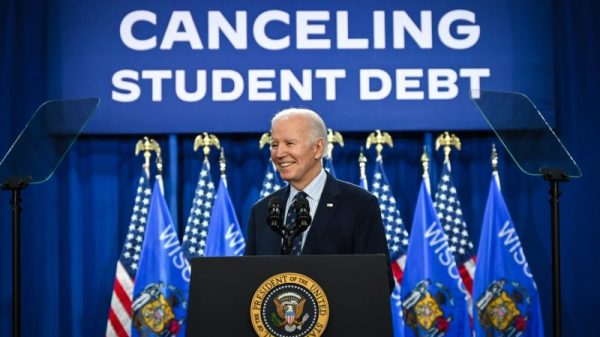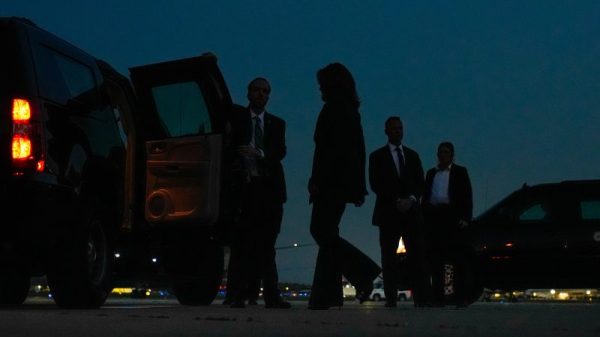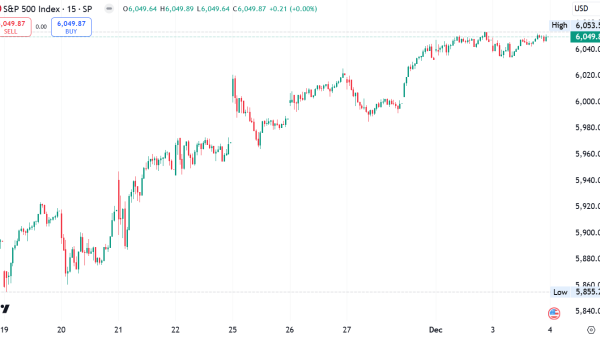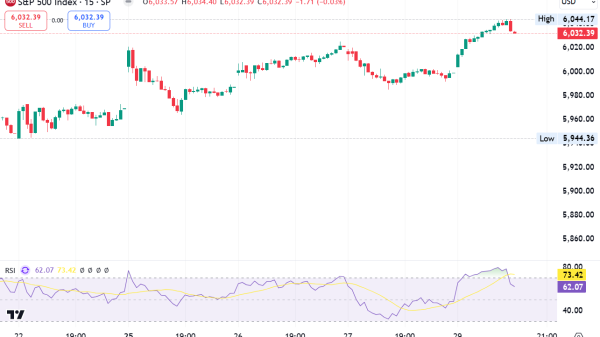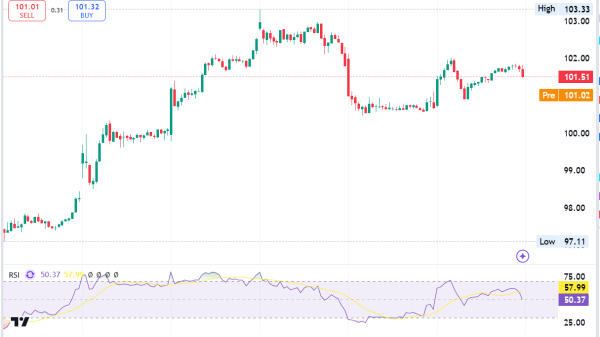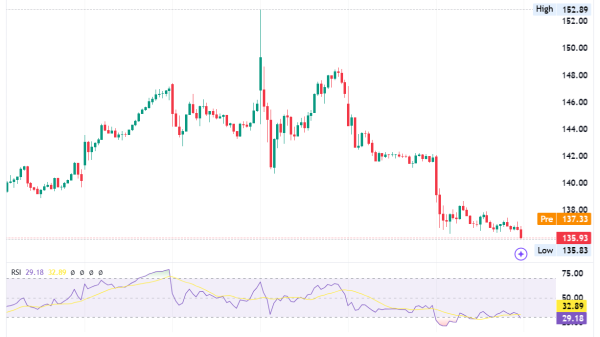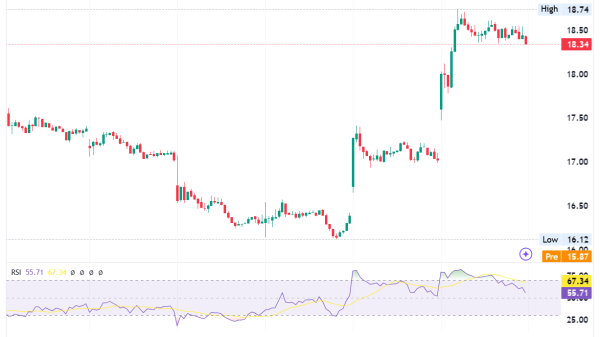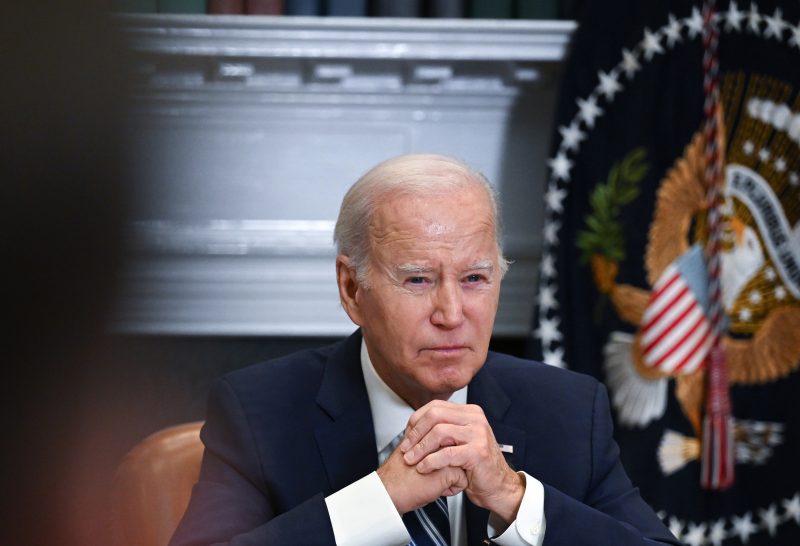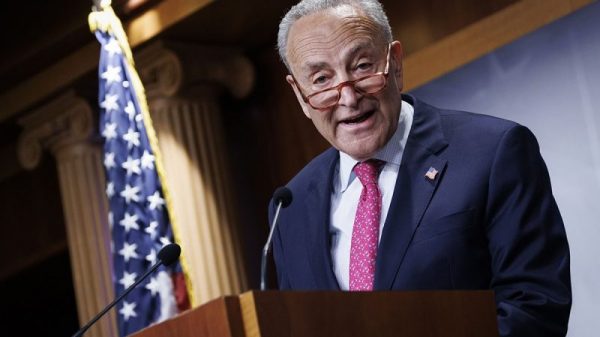The Biden administration urgently hoped to use the recent pause in hostilities between Israel and Hamas to change the course of the war in Gaza. As the fighting began anew Friday, it was unclear whether those efforts were having any effect.
In a marked contrast from their tone before the initial Israeli onslaught in Gaza, top U.S. officials during the brief window when guns were silent made it clear that if Israel’s renewed operations again yielded massive casualties, it would be openly rejecting the explicit position of American leaders.
Biden officials — including Secretary of State Antony Blinken, who was in the Middle East this week on his third trip to the region since the Oct. 7 Hamas attacks — declared publicly that they would support an Israeli military campaign in the south of Gaza only if Israel took concrete steps to limit civilian casualties, protect critical infrastructure such as hospitals and ensure it did not displace even more people in Gaza, where about 80 percent of the enclave’s 2.3 million residents have been uprooted since the war began.
Despite this notable change in message and tone, outside advisers and Middle East experts said it remains unclear whether Biden would be willing to distance himself or break with Israel if it does not heed the American exhortations and undertakes another broadly devastating aerial campaign.
“There’s a rhetorical change in how they’re talking about it, but it doesn’t seem substantive,” said Steven Cook, senior fellow for Middle East and Africa studies at the Council on Foreign Relations. “If Israel pursues its military operations in a similar fashion, then you know the administration really hasn’t had an effect.”
Itamar Rabinovich, a former Israeli ambassador to Washington, said Israeli officials recognize that there cannot be a repeat of what happened in the north. But he said the United States and Israel were probably headed for a public break over what happens after the war in Gaza is over. Biden has repeatedly called for a two-state solution with a “revitalized” Palestinian Authority running Gaza and the West Bank, while Israeli Prime Minister Benjamin Netanyahu has long made clear he has little interest in establishing a Palestinian state.
“The big problem, as I see it, is the thinking about the day after,” said Rabinovich, a distinguished fellow at the Brookings Institution. The Biden administration “would like to see a renewal of negotiations between Israel and the Palestinian Authority with the prospect of a Palestinian state at the end of the process. That’s a big problem between the Biden administration and Netanyahu government, because Netanyahu is very much focused on staying in power.”
Many diplomats believe Netanyahu is loath to do anything to upset the far-right members of his cabinet whose defection could threaten his political prospects.
U.S. officials had hoped the seven-day pause between Israel and Hamas, when more than 100 Israeli hostages were released in exchange for Palestinian prisoners and increased aid flowed into the besieged Gaza Strip, would last longer and possibly lay the groundwork for a permanent cease-fire. A slightly more hopeful mood briefly prevailed as hostages joyfully reunited with their families, food and fuel finally reached decimated parts of Gaza, and the bombs and missiles fell silent.
But on Friday, Israel and Hamas blamed each other for the breakdown of the fragile truce, and Israel resumed its airstrikes. The United States blamed Hamas for the breakdown after it fired rockets into Israel and failed to produce a promised list of hostages.
Blinken said after meeting with Israeli leaders in Tel Aviv this week that Israel had agreed to adopt a “clear plan” for averting civilian deaths before resuming its assault of southern Gaza, though he did not provide details. The Gaza Health Ministry reported that 178 Palestinians died Friday after hostilities resumed.
A senior administration official said Biden aides had worked around-the-clock during the pause — when they hoped Israeli officials were calmer and more receptive to U.S. advice — to help them come up with a more targeted military strategy. U.S. officials stressed that Israel, which sealed off northern Gaza and has not allowed residents to return, could not then seal off southern Gaza and carry out another deadly aerial attack with 2 million civilians crammed there.
Israeli officials dropped leaflets Friday on Khan Younis, one of the largest cities in Gaza, saying it plans to target several Hamas targets in the southern city, declaring the area a “dangerous combat zone” and directing residents to move farther south to Rafah, near the Egyptian border.
The senior U.S. administration official said there are areas of Khan Younis that are legitimate Hamas targets, but that U.S. officials have told Israel those sites should not be attacked by air because of the civilian population.
Overall, it remained far from clear whether Israel has changed course in the way U.S. officials were pushing for — adopting a far more limited, targeted approach to going after Hamas fighters while sparing civilians. Some officials pointed to Israel’s decision to publish a numbered map that divides Gaza into several zones and tells residents which ones should be evacuated as evidence that it was heeding U.S. guidance.
But some experts said they saw little sign that the renewed Israeli bombing raids were being undertaken with the kind of caution needed to limit civilian casualties in one of the most densely populated places on earth.
Israeli military officials say they take the advice of U.S. officials seriously but have suggested they do not see the need for significant changes in the way they are conducting their operation.
“We’re continuously talking with anyone who has lessons learned about this area, including our American counterparts,” Israel Defense Forces spokesman Amnon Sheffler told reporters this week at the Israeli Embassy in Washington. “I don’t think that so far, there’s big lessons that we have been missing. We have not heard anything that we’ve been missing. We know, sadly, that that’s really the situation.”
The warnings from top Biden officials mark a clear departure from the administration’s rhetoric at the beginning of the conflict. When Israel launched its unrelenting bombing campaign in northern Gaza in October — one that has killed more than 13,000 Palestinians and forced more than 1 million civilians to evacuate — the United States was careful not to criticize Israel or issue strong warnings, other than to say it expected the Jewish state to abide by international law.
But Biden has come under growing pressure from fellow Democrats and U.S. allies to help bring the war to an end as the humanitarian situation in Gaza worsens and outrage mounts over civilian casualties, particularly the deaths of thousands of children. Israel did not allow aid to enter Gaza — where residents have for weeks struggled to obtain basic necessities including food, water and medicine — after the resumption of fighting.
“The administration somewhat belatedly realized that a war in Gaza is not in American interests, that however much we may agree with Israel that Hamas is an evil terrorist organization, a war in which thousands of innocent Palestinians are killed damages America’s reputation throughout the Middle East, the Islamic world and beyond,” said Bruce Riedel, a senior fellow at the Brookings Institution and former official in the Clinton administration involved in Israeli-Palestinian peace efforts.
Biden, however, has repeatedly justified the incursion by saying Israel has a right and a responsibility to defend itself after the brutality of the Oct. 7 attacks, in which Hamas militants killed about 1,200 Israelis took some 230 hostage. It is not clear that the president, a staunch defender of Israel who has called himself a Zionist, is willing to distance himself or break with Israel even if it resumes a deadly aerial bombardment in defiance of American wishes.
“I think the president is very, very reluctant to go further,” Riedel said. “He finds himself in a very unpleasant place: He’s a lifelong supporter of Israel dealing with the biggest crisis in Israel in 50 years, and he knows war in Gaza is not in the American interest, but he doesn’t have a mechanism to compel the Israelis to stop.”
Biden has used what some allies call a “bear hug” strategy of publicly embracing Israel and seeking to use his leverage — including his immense popularity in Israel — to influence the Israeli government in private. But as Israel has continued to use scorched-earth tactics, U.S. officials have increasingly sought to distance themselves from its approach.
Sen. Bernie Sanders (I-Vt.) on Friday lambasted Netanyahu for resuming the attacks.
“Netanyahu’s resumption of bombing in Gaza is beyond the pale. Two million people are now in south Gaza. Many have fled earlier fighting in the north. The pause must be extended to get more humanitarian aid in and more hostages out,” Sanders wrote in a post on X, formerly Twitter.
Even some defenders of Israel in Congress are taking once unlikely positions. A group of Senate Democrats has discussed imposing conditions on the aid that the United States provides Israel, for example requiring it to abide by the tenets of international law.
“We have an interest in making sure that the assistance we provide to Israel helps win the war and makes Israel safer,” said Sen. Chris Murphy (D-Conn.). “As I have said, the level of civilian harm inside Gaza is unacceptable, unsustainable, and comes at not only a moral, but also a strategic cost to Israel’s long-term security.”
John Hudson contributed to this report.






